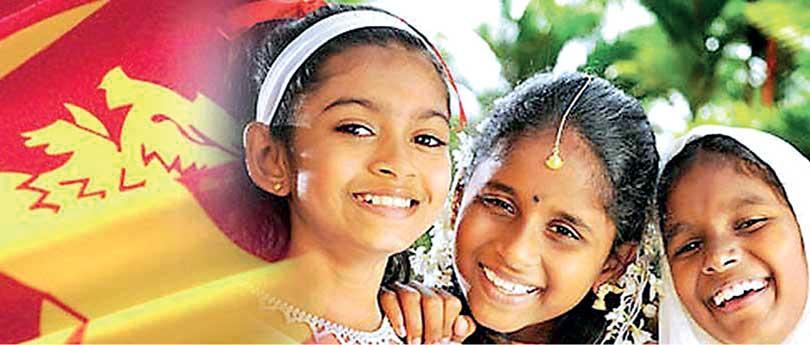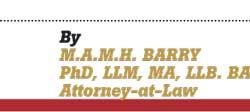21 Dec 2021 - {{hitsCtrl.values.hits}}


Our ability to reach unity in diversity will be the beauty and the test of our civilization.”
-Mahatma Gandhi
 The widely publicized ‘one country and one law’ perception conveys a hazy implication to the public and raises suspicion and alarm among minority communities, particularly the Muslim community, who perceive apprehension and fear of gradual deprivation of religious and cultural rights that they have enjoyed for centuries.
The widely publicized ‘one country and one law’ perception conveys a hazy implication to the public and raises suspicion and alarm among minority communities, particularly the Muslim community, who perceive apprehension and fear of gradual deprivation of religious and cultural rights that they have enjoyed for centuries.
Justification for continuation or discontinuation of Muslim personal law depends on the cardinal question of whether the continuation is politically and constitutionally justifiable. Personal laws in Sri Lanka have both political and constitutional justification. The political justification derives from the essence of the social contract that Sri Lanka as a state has with its people. In a social contract, the state recognizes, embraces, and protects its citizens’ rights and aspirations. In return, the people accept the authority of the state to exercise its rights and obligations to protect these rights and aspirations.
However, the word “people” in this context is not the same as what was understood under the “Westphalian Agreement (1648), where the nation state system was created on the presumption of the cultural homogeneity of people, which did not appear in many states after the NS system was created. Today, many states are multi-religious, cultural, and racial/linguistic states where diverse communities live.
International laws are rapidly evolving to provide states with guidance on how to address and resolve problems related to multilateral societies within a state. Hence, the social contract in a multi-religious, racial, and cultural state has two indispensable elements: (1) the social contract with the people as a whole, where the equal protection of all people is assured; and (2) the social contract with the diverse communities, where the protection of equitable rights is assured.
People in a multicultural and pluralistic society, such as Sri Lanka, do not form a monolithic entity; rather, they are diverse entities that represent the nation’s common entity. Such a social contract could create an inclusive society as defined by Helsinki (July 2008) that ensures inclusion and equal opportunity. They are about the coexistence of different groups within a society (UNDP & NOREF, 2016). Under the social contract, the state could not deprive or deny the rights of its people without their consent (Butchers’ Union case (1884-111 U.S. 746) per Field J).
Several countries, including India, Israel, Thailand, and Singapore, where Muslims are a minority, have constitutionally recognized this fact and given constitutional protection to exercise these rights. For instance, in Singapore, the accommodation of Muslim personal law has a constitutional derivation as its Constitution Article 12(3) states that the Equality clause does not invalidate or prohibit any provision regulating personal law.” This reflects the recognition of the positive aspects of the equality clause in the constitution itself.
Constitutional or Legal Justification?
The key argument against personal law is taken under the cover of Act. 12 of our Constitution, which guarantees “Equal before the Law and Equal Protection of the Law” (Equality Clause). We have seen some argue, knowingly or unknowingly, that Muslim personal laws violate the equality clause because there should be one law for all citizens, even in personal or private matters.
The equality clause has two essential elements: (1) it commands the state not to deny any person “equality before the law”, and “equal protection of the law” (negative element); and (2) it commands the state to give special treatment to persons in different situations in order to establish equality amongst all (positive element). This is a fundamental principle of justice that has been universally recognized that the implication of the equality clause necessarily demands that equals should be treated equally and unequals unequally. In the United States, the Fourteenth Amendment to its Constitution, which affirms the equality clause, has been interpreted in many cases by referring to and reading with other amendments to the Constitution, especially the First Amendment (the Establishment Clause, which guarantees freedom of religion).
No Discrimination against Others
A question could be raised about why a separate personal law is made applicable only to Muslims while other communities follow the general law. The best answer is that other communities are also equally entitled to their own personal laws if they claim that they have separate personal laws. This is a question of the functional aspects of plurality, which itself depends on what different communities claim as their cultural, religious, and linguistic identities.
Hence, there is no political, constitutional, or legal justification to deprive or whittle down these rights as it will (1) infringe the social contract with the minority communities, (2) infringe the fundamental provisions of the Constitution, and (3) infringe the provisions of the International Conventions which stress the preservation, protection, and advancement of minorities’ rights, especially their cultural and religious rights. Sri Lanka has ratified several such conventions.
Reforming MMDA
There are several arguments for and against reforming the Muslim Marriage and Divorce Act (MMDA).The question that arises is, why should it be reformed? Is reform for whose benefit or whose detriment? If Muslim laws should be reformed for the benefits of the Muslim community, as some claim, then the request for reformation should be made by the Muslim community itself, as these laws are applicable only to them.
Only the followers can make religious decisions about their religion, and no outside imposition is legally or morally justifiable. The Indian Supreme Court in the landmark Sri Shirur Mutt case declared that “... what constitutes the essential part of a religion is primarily to be ascertained with reference to the doctrines of that religion itself.” (1954 SCR 1005).
The government should consult with the Muslim community and get their consent for any amendment without favouring any fringe group that does not represent the whole community and whose views are not commonly shared by the majority of the community. It is a duty of the state to ensure that it does not support one religious group against another, or a sub group or groups within the followers of a religion against another group within, but rather it is its duty to protect the rights of every group equally and equitably.
If the Muslim community could make a collective decision on this question, the solution could be provided for those who are not satisfied with the final proposal by providing them a choice/option to govern their matters related to personal laws either through Muslim law or general law. Such a solution will resolve any disenchantment among those who do not agree to a compromised solution unless their proposal is exclusively accepted.
“One country and one law” should not be a rhetoric to further the fragmentation of Sri Lankan society by forcing a new status quo that is harmful to the minorities, but should be used as a concept to unite people and cement brotherhood among all communities.
Abrogating or substantially depriving the rights of Muslims could pave the way for further disintegration and disunity among the Sri Lankan communities that have already been impaired and fragmented by mistrust, suspicion, and disunity, as our country does not need further damage to harmony, unity, and trust among them
The nation-building of Sri Lankan societies is inextricably linked to the acceptance of diversity and pluralism, as it necessitates the protection of the rights of all communities. Cultural diversity is as necessary for humankind as biodiversity is for nature. Sri Lanka needs emotional, practical, and functional unity among its people, and this can be achieved only when communities respect each other’s cultures, religions, identities, and rights.
18 May 2024 6 hours ago
18 May 2024 8 hours ago
18 May 2024 9 hours ago
18 May 2024 18 May 2024